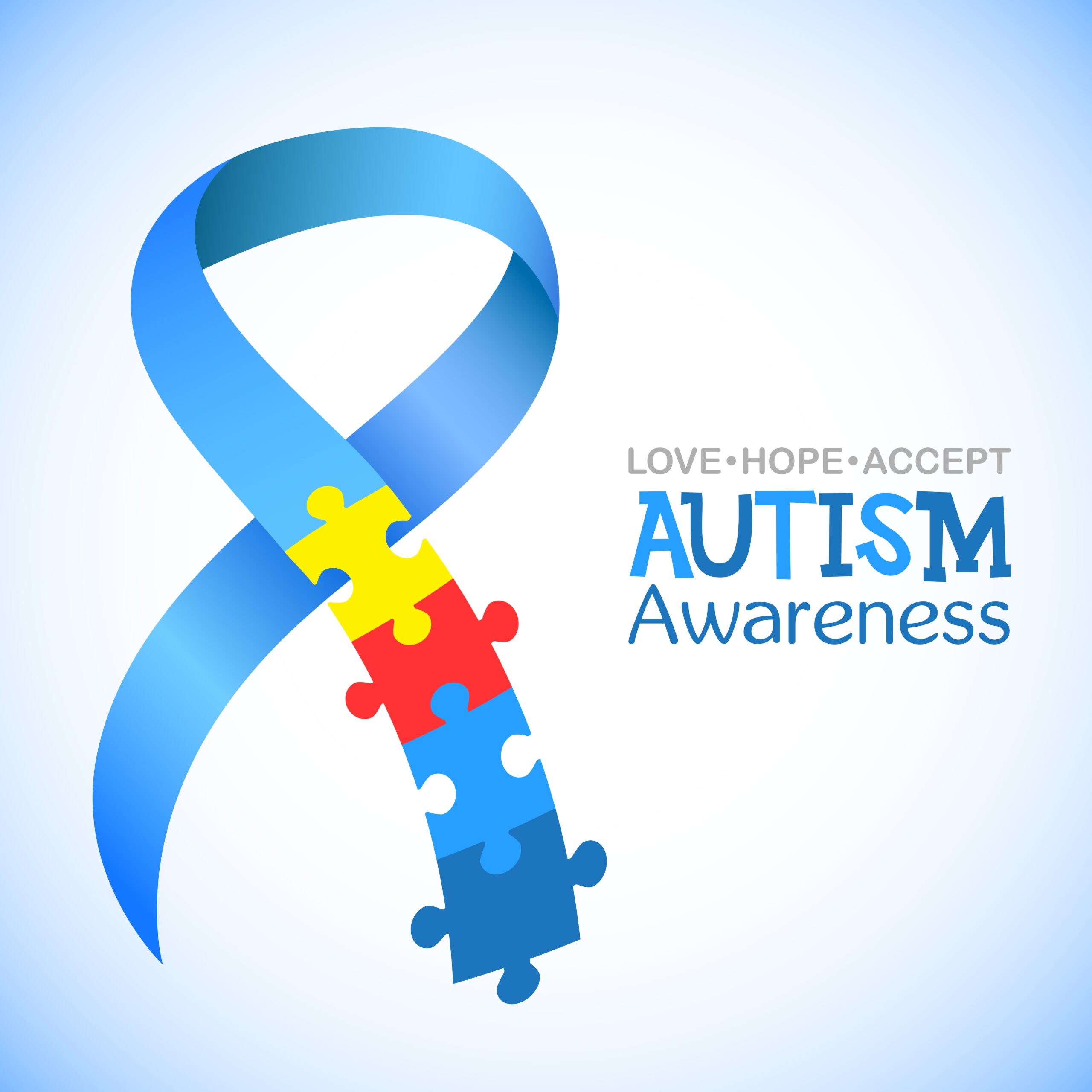
Light it up blue! April is Autism Awareness Month

For almost 50 years April has been recognized as World Autism Month, kicked off on April 2nd with the United Nations-sanctioned World Autism Awareness Day. It’s a period each year to focus on positive, respectful and accurate information about autism spectrum disorder (ASD), people with autism, the challenges they face and the gifts they possess, all cloaked in the color blue.
During April, communities across the country usually recognize the month with autism-friendly events and educational activities aimed to promote acceptance of people with autism and a more inclusive world. This year, due to COVID-19, many of those events have been cancelled or postponed.
But staying at home doesn’t mean you can’t take time this month to educate yourself about those members of your families and communities who live with autism. ASD occurs in all ethnic, racial and economic groups. Someone with autism may be your neighbor, the child of a friend or a beloved family member.
So what are the symptoms of autism? According to Autism Speaks, one of the world’s leading advocacy groups, the two core symptoms are: social communication challenges, and restricted, repetitive behaviors. Those symptoms are manifested in a number of ways and can often interfere with daily living.
Social communication challenges can include spoken language, gestures, eye contact, facial expressions, tone of voice and expressions. They can also include difficulty with recognizing emotions in others, within themselves, and in recognizing “normal” social cues, from personal space to conversation exchanges. Restricted and repetitive behaviors are also often exhibited with repetitive body movements and motions, staring at lights or spinning objects, ritualistic behaviors, resistance to change and extreme interests in specific topics.
Those with ASD are almost always completely honest, sometimes brutally so, but you can trust what you’ve been told. People on the spectrum tend to live in the moment, they’re non-judgmental, possess extraordinary memories and are passionate about their interests. If you know or love someone with ASD, you likely already know and embrace those qualities.
What you may not know is that when you’re on the spectrum, co-existing in a neurotypical world is work. For those who are able, navigating daily life and trying to fit in requires constant focus. It’s exhausting. Think how difficult it’s been to adjust to the new COVID-19 rules—social distancing, working from home, home schooling, the inability to freely move about, the need to develop new routines, to not feel trapped, to not obsess about how much toilet paper you have—and you can begin to imagine how challenging it is for people on the spectrum to climb social hills every day of their lives.
Since you most likely have extra time on your hands this Autism Awareness Month, why not do some of the work yourself? Learning more about how the people you care about are wired, empathizing with them, will help you to better connect with those on the spectrum, enhancing their lives and yours.
Hope Trust serves clients throughout the United States.

